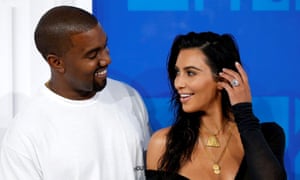Celebrity – It’s The Smiling Face Of The Corporate Machine
Our failure to understand the link between fame and big business made the rise of Trump inevitable.

Now that a reality TV star is preparing to become president of the United States, can we agree that celebrity culture is more than just harmless fun – that it might, in fact, be an essential component of the systems that govern our lives?
The rise of celebrity culture did not happen by itself. It has long been cultivated by advertisers, marketers and the media. And it has a function. The more distant and impersonal corporations become, the more they rely on other people’s faces to connect them to their customers.
Corporation means body; capital means head. But corporate capital has neither head nor body. It is hard for people to attach themselves to a homogenized franchise owned by a hedge fund whose corporate identity consists of a filing cabinet in Panama City. So the machine needs a mask. It must wear the face of someone we see as often as we see our next-door neighbors. It is pointless to ask what Kim Kardashian does to earn her living: her role is to exist in our minds. By playing our virtual neighbor, she induces a click of recognition on behalf of whatever grey monolith sits behind her this week.
An obsession with celebrity does not lie quietly beside the other things we value; it takes their place. A study published in the journal Cyberpsychology reveals that an extraordinary shift appears to have taken place between 1997 and 2007 in the US. In 1997, the dominant values (as judged by an adult audience) expressed by the shows most popular among nine- to 11 year-olds were community feeling, followed by benevolence. Fame came 15th out of the 16 values tested. By 2007, when shows such as Hannah Montana prevailed, fame came first, followed by achievement, image, popularity and financial success. Community feeling had fallen to 11th, benevolence to 12th.
A paper in the International Journal of Cultural Studies found that, among the people it surveyed in the UK, those who follow celebrity gossip most closely are three times less likely than people interested in other forms of news to be involved in local organisations, and half as likely to volunteer. Virtual neighbours replace real ones.
The blander and more homogenised the product, the more distinctive the mask it needs to wear. This is why Iggy Pop was used to promote motor insurance and Benicio del Toro is used to sell Heineken. The role of such people is to suggest that there is something more exciting behind the logo than office blocks and spreadsheets. They transfer their edginess to the company they represent. As soon they take the cheque that buys their identity, they become as processed and meaningless as the item they are promoting.
A database search by the anthropologist Grant McCracken reveals that in the US actors received 17% of the cultural attention accorded to famous people between 1900 and 1910: slightly less than physicists, chemists and biologists combined. Film directors received 6% and writers 11%. Between 1900 and 1950, actors had 24% of the coverage, and writers 9%. By 2010, actors accounted for 37% (over four times the attention natural scientists received), while the proportion allocated to both film directors and writers fell to 3%.
This helps to explain the mass delusion among young people that they have a reasonable chance of becoming famous. A survey of 16-year-olds in the UK revealed that 54% of them intend to become celebrities.
As soon as celebrities forget their allotted role, the hounds of hell are let loose upon them. Lily Allen was the media’s darling when she was advertising John Lewis. Gary Lineker couldn’t put a foot wrong when he stuck to selling junk food to children. But when they expressed sympathy for refugees, they were torn to shreds. When you take the corporate shilling, you are supposed to stop thinking for yourself.
Celebrity has a second major role: as a weapon of mass distraction. The survey published in the IJCS I mentioned earlier also reveals that people who are the most interested in celebrity are the least engaged in politics, the least likely to protest and the least likely to vote. This appears to shatter the media’s frequent, self-justifying claim that celebrities connect us to public life.
The survey found that people fixated by celebrity watch the news on average as much as others do, but they appear to exist in a state of permanent diversion. If you want people to remain quiescent and unengaged, show them the faces of Taylor Swift, Shia LaBeouf and Cara Delevingne several times a day.
In Trump we see a perfect fusion of the two main uses of celebrity culture: corporate personification and mass distraction. His celebrity became a mask for his own chaotic, outsourced and unscrupulous business empire. His public image was the perfect inversion of everything he and his companies represent. As presenter of the US version of The Apprentice, this spoilt heir to humongous wealth became the face of enterprise and social mobility. During the presidential elections, his noisy persona distracted people from the intellectual void behind the mask, a void now filled by more lucid representatives of global capital.
Celebrities might inhabit your life, but they are not your friends. Regardless of the intentions of those on whom it is bequeathed, celebrity is the lieutenant of exploitation. Let’s turn our neighbors back into our neighbors, and turn our backs on those who impersonate them.
No comments:
Post a Comment